#shakespeare quotes
Text






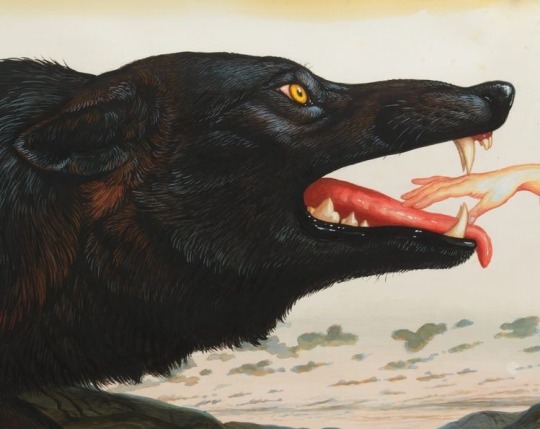



on reckless, self-destructive devotion and the sharp edges of longing that look almost like teeth
Phoebe Bridgers, “Moon Song” // unknown // Margaret Atwood, “Speeches for Dr. Frankenstein” // quadruple dog art by @mxmorggo on Instagram // Hozier, “Take Me to Church” // STELLAR, “Reflections” // AJJ, “I Wanna Be Your Dog 2” // Mitski, “I’m Your Man” // William Shakespeare, Midsummer’s Night Dream // Tumblr user @ojibwa // Trista Mateer, from “How I Asked You to Stay,” Honeybee.
#web weaving#poetry webbing#this is not to romanticize or endorse self-destructive devotion#I’ve just been in this kind of dynamic before and these quotes hit home for me#words words words#words n quotes#word webbing#quotes#trista mateer#Phoebe Bridgers#shakespeare#Shakespeare quotes#midsummer’s night dream#Margaret Atwood#on devotion#on self-destructive devotion#poetry#words and stuff#quotes and words#quotes and poetry#webbing#word weaving#word webs#the land is inhospitable and so are we#mitski#mitski lyrics#dog motif
3K notes
·
View notes
Text


172 notes
·
View notes
Text
So let’s talk about (homo)sexuality during Shakespeare’s time and in his plays… (with a Shakespearean student, me!)
This is a divisive topic and some scholars have very Bad Takes on it, in my (also a scholar) opinion, so let's talk about it both from an evidence-based perspective, and a queer perspective.
The most important thing to note is that we cannot actually know what Shakespeare or any other Elizabethan citizen really thought about homosexuality and queer love. A lot of scholars acknowledge that fact and then make statements like ‘but they just didn’t think of sexuality like that!!’ but our not-knowing goes both ways. As a gay person, I find the assertion that people during this time period just didn’t feel homosexual love super offensive and ignorant, but at the same time, I know what they mean. So with that in mind, let’s talk about the facts…
Homosexuality was a well known of and partially accepted practice during this time. When I say partially accepted, I mean it was about as acceptable as it would be today at a Christian school in the heart of Texas. People knew about it, they knew people participated in it, but they didn’t like it and believed it went against God. But they felt that way about a lot of things! So when they passed The Buggery Act of 1533 (around 30 years before Shakespeare was born) it wasn’t really enforced. This act prohibited anal sex among any gender, or sex with animals. This law did not refer to gay people; rather just any sex not for the purpose of procreation, or anything that was not consensual.
Now a lot of homosexual practice at this point was unfortunately based on misogyny. Men in society were viewed as dominant and interesting while women were viewed as submissive and annoying. This is an unfortunate fact, but in order to discuss Elizabethan homosexuality in any capacity, we have to accept it for what it is; a reality. Because men generally didn't like women, they often sought out the company of other men in a well-accepted practice simply referred to as Male Friendship.
In male friendships, men would basically hang out together, kiss, cuddle, sleep in bed together, and profess their love for one another. If they had sex with each other, it would be viewed as immoral and wrong, but not unusual or even really cause for alarm. As I said above, sodomy laws were not really enforced during this time. There was no Elizabethan word for being gay or homosexual, and it was not publicly considered an identity or something you could be, rather just something you did. Regardless, even if men participated in these relationships, they still would've been expected to get married to a woman. Since marriage between men wasn't legal, people in society generally didn't consider the fact that two men could love one another. (Lesbian love or sex between women would've been so unthinkable at this point, there really isn't any information on it at all, unfortunately). However, with this, remember that we cannot know what individuals thought about these topics. It's totally possible that men might've fallen in love and wished to be marry, or even have considered themselves to be married. We just don't have that information because it would've been a secret.
So, there are certain contexts when erotic relationships between men would've been acknowledged and even accepted in certain circles, including theatrical ones! So these are the ones we see in Shakespeare's plays. One such context is in a youthful sense; young men were seen as full of life and passion - it's totally possible that they would've fooled around with their other male friends, and it would've been frowned upon, but assumed that they would grow out of it. Another context is in the derogatory sense; it's possible that once men were grown, their youthful same-sex exploits would be used to tease them. And finally, it would've been used in a predatory or immoral way, to represent corruption. This one requires more explaining. It's very important to remember that Shakespeare's plays had to go through the church and church censors. King Lear was censored during King George's reign, for example, and it did happen semi-frequently. So he could not portray explicit queer love on the stage in a positive light. What he could do is portray it in a negative light, which he sometimes did.
Was Shakespeare homophobic? Well, homophobia didn't exist during his time. Everyone was homophobic. Everyone was distasteful of gay people, even other gay people. It's not the best metaphor, but think about it like this; if you smoke cigarettes in today's day and age, you aren't going to go around telling everyone how much you love cigarettes and how great they are, or trying to convince others to try them. You're going to be probably a bit embarrassed and self-deprecating; you know it's wrong and bad for you, but you do it anyway because it feels good. Get it?
Was Shakespeare gay? He was definitely queer. The sonnets he wrote to men prove that, as well as the characters in his plays. But this isn't a biographical post, so let's talk about some literature.
Let's apply what we've learned so far to Shakespeare!
I'll provide an example for each of the above cases in Shakespeare's works.
First, let's talk about youthful 'male friendship' and homoeroticism in Hamlet, cause I know it's everybody's favorite on here.
Hamlet and Horatio's relationship has been speculated on sooo much, I feel like a bit of an exhibitionist once again holding up a microscope to it, but oh well.
Hamlet is a young, troubled protagonist who definitely commits worse crimes that sodomy over the course of five acts. Hamlet is often portrayed on stage as being in his late 20's or 30's, but we can't forget that in the text, him and Horatio are students, they're young! Teenagers or early 20's. The two of them are certainly close (closer than Hamlet is to any other character), and their relationship is reminiscent of the type of male friendship I was describing above.
In their first meeting onstage, Hamlet greets Horatio first, despite multiple people coming on stage at once. Let's break these first five lines down a little bit:
"HAMLET I am glad to see you well.
Horatio—or I do forget myself!
HORATIO The same, my lord, and your poor servant ever.
HAMLET Sir, my good friend. I’ll change that name with you. 170
And what make you from Wittenberg, Horatio?—"
(Hamlet, I.ii.165-170)
So, first off, Hamlet is glad to see Horatio, who he singles out from the group. He'll greet the others later, but first, he greets his good friend. Now, when Hamlet says, "or do I forget myself?" on a surface level, he's making sure he has Horatio's name right. Honestly, this is probably Shakespeare's way of introducing Horatio to the audience. A character needs a name - Horatio is introduced with the reference of his. But Hamlet's meaning has some wiggle room for interpretation - he doesn't say something to the effect of 'your name is Horatio right?" or even just, "or do I forget YOU." He says, "Do I forget myself."
(by the way, in Shakespeare studies, we never blame anything on the meter, meaning it isn't acceptable in a scholarly context to say "oh shakespeare just wrote it that way because 'my*self' is two syllables - Shakespeare is a better poet than that, absolutely nothing is without deeper meaning than just fitting the meter. This is proved by the amount of times that Shax breaks the meter to get a point across - he valued poetry above syllable count).
But I digress. Hamlet saying ' do I forget myself" carries a tremendous amount of weight. He's not being sincere in asking if he has Horatio's name right, he knows Horatio because Horatio is part of him. Just as he would not forget himself, he has not forgotten Horatio.
Now, to look at the next few lines, remember that Hamlet is a prince and Horatio is just Some Guy. During this time period, this would have been significant. Hamlet is choosing to be around Horatio - they aren't of the same class or wealth. So when Horatio refers to himself as Hamlet's "Poor servant ever," he's self-deprecating a little bit, but also addressing the elephant in the theater. Audiences at this time would question why Hamlet was hanging out with this random poor guy. Shakespeare explains with the next line.
"Sir, my good friend, I'll change that name with you." Okay. There's a lot to unpack here. "My good friend," is quite a statement to make. Friend didn't have quite the same implication back then that it does now - back then it would've meant more of 'a person who I am in proximity to and spend time with' than 'my buddy.' It didn't necessarily mean that people enjoyed each other's company. But Hamlet adds in the 'good,' which adds quite a bit of weight. He's using 'good' as a descriptor of Horatio's character here, not a description of the strength of their friendship. If anyone watches WWDITS, think of Lazlo saying, "My good lady wife, Nadja." Hamlet is saying he admires Horatio. He thinks Horatio is of good character, and therefore likes to spend time with him. AND THEN, Shakespeare just kicking me down the stairs and laughing as I fall, he hits us with the, "I'll change that name with you."
The name in question is "your poor servant ever," which means that Hamlet is basically saying, "I like you so much, you can be the prince and I'll be your servant." Which is a crazy thing for a prince to say! And there's really no reason for him to say it, unless him and Horatio were so intimately close that Hamlet truly meant it, which of course, he does.
So, if we're talking about male friendships that exceeds the typical bonds of normal acquaintance... I mean... need I explain further?
I will explain further.
Throughout the play, we see Ophelia as an acceptable love-interest for Hamlet. Even though they don't do very much romancing at all, but... that's okay. She's there, she 'proves' Hamlet's status as a heterosexual man, (and of course, she does much more than that. But for the sake of this analysis, we won't explore her character beyond this.) Despite Hamlet's affection for her, the person he confides to in the play is Horatio. This is unfortunately due to misogyny - women just really would not have been thought of as confidants and people who were able to give advice. But this doesn't invalidate the fact that Hamlet's usage of Horatio as a friend who is distinct from other friends, and who provides council like a partner would, does strongly imply a degree of homosexuality between them.
And of course, there's the blatant homosexuality in Hamlet's death scene, but we don't have time to unpack all of that! (It's been done many, many times, and I'm just providing an overview here.)
Now let's talk about the more derogatory usage of homosexuality using my favorite comedy, 'Much Ado about Nothing.'
In the first scene of the play, Beatrice discusses Benedict, who is coming home from war.
When she first mentions him, she says, "I pray you, is Signior Mountanto returned from the wars or no?" (I.i.30).
'Mountanto' is a fencing term literally meaning an 'upward thrust,' your scholarly annotations won't tell you this, but really what she's doing is referencing the amount of sex Benedict had out on the road during the war. What kind of sex? Gay sex. Let me say more.
Later in the scene we get this gem of an exchange:
"MESSENGER And a good soldier too, lady.
BEATRICE And a good soldier to a lady, but what is he
to a lord?
MESSENGER A lord to a lord, a man to a man, stuffed
with all honorable virtues.
BEATRICE It is so indeed. He is no less than a stuffed
man, but for the stuffing—well, we are all mortal."
(Much Ado About Nothing, I.i.52-58)
Beatrice is making fun of Benedict; she doesn't like him, she's teasing him. First, she outwardly questions his relationships with men, acknowledging that he sleeps with a lot of women, but also suggesting that he sleeps with men. The messenger doesn't rise to her bait, he affirms Benedict's "honorable virtues" meaning that doesn't believe Benedict would've slept with men - he's too good. However, Beatrice plays off of his use of "stuffed" and elaborates that not only does Benedict have gay sex, but that's he's the one being penetrated during the gay sex, which would've been emasculating as men were assumed to be dominant. A stuffed man means she thinks he's a bottom. The layers of this gay sex joke have added years to my life. Absolutely hilarious.
Additionally, throughout the play, Benedict frequently mentions that he has no desire to marry a woman because he has no need. This is probably because he's content to fuck around with men for a while, and doesn't feel the need to marry a woman for sex. — He later marries a woman for love. Different story ;)
Finally, let's discuss the use of homosexuality as a form of corruption using my FAVORITE queer coded characters ever, Brutus and Cassius of Julius Caesar!
I just wrote an entire paper for school on how badly Brutus and Cassius want each other, so I have A Lot to say, but I'll restrain myself... deep breath...
The first conversation Brutus and Cassius have on stage is a seduction, literally. Cassius is seducing Brutus and pulling him away from Caesar, with compliments and promises. Brutus promises to consider Cassius's offer and walks away, but the next time we see them, things have Changed. Brutus says the following after him and Cassius talk to a third party (Casca):
"BRUTUS Tomorrow, if you please to speak with me,
I will come home to you; or, if you will,
Come home to me, and I will wait for you."
(Julius Caesar, I.ii.316-319).
I mean, what can I say about this beyond the obvious. They're going home to each other. Brutus's corruption directly corresponds with his physical descent into moral depravity (homosexuality).
And then, once Brutus leaves the sage, Cassius says this:
(Cassius, continued): For who so firm that cannot be seduced?
Caesar doth bear me hard, but he loves Brutus.
If I were Brutus now, and he were Cassius,
He should not humor me."
(Julius Caesar, I.ii.324-327).
Cassius is a manipulator, we know that. He draws the "honorable" Brutus to betray his friend and commit an act of evil. All with the power of homosexuality :).
Once he succeeds in this, we get the infamous Tent Scene. Act 4, scene 3. Folks, I think about this scene every day. If you've read the book 'If We Were Villains,' that author does a fun job of explaining this scene, I like the way she calls it a lovers spat.
Brutus realizes that Cassius seduced him for the purpose of corrupting him, and is heart broken. Somebody PLEASE ask me to do a line-by-line breakdown of this scene, because nothing would make me happier. But for now, like I said, I'll restrain myself.
As Brutus and Cassius, fight, we get this exchange:
"BRUTUS Peace, peace! You durst not so have tempted (Caesar).
CASSIUS I durst not?
BRUTUS No.
CASSIUS What? Durst not tempt him?
BRUTUS For your life you durst not.
CASSIUS Do not presume too much upon my love.
I may do that I shall be sorry for."
(Julius Caesar, IV.iii.66-73)
Brutus is betrayed, and feels that Cassius never would've (sexually) tempted Caesar the way he did to Brutus. Brutus feels like he got played. But Cassius, while threatening Brutus, takes time to reaffirm that he loves Brutus! His feelings are real; this is part of what unfortunately categorizes him as a villain. He is unflinchingly gay for Brutus.
Later in this same scene, we get another notable exchange:
"CASSIUS I denied you not.
BRUTUS You did.
CASSIUS I did not. He was but a fool that brought
My answer back. Brutus hath rived my heart.
A friend should bear his friend’s infirmities,
But Brutus makes mine greater than they are.
BRUTUS I do not, till you practice them on me.
CASSIUS You love me not.
BRUTUS I do not like your faults."
(Julius Caesar, IV.iii.90-100)
Sigh. Okay, this is... this is maybe Shakespeare's most romantically gay scene ever. And this is what makes gay corruption in Shakespeare so awesome; under the guise of painting Cassius as more and more evil, Shakespeare can be pretty explicitly gay!!
"Rived" means broken in old English. With his withdrawal of love, Brutus as broken Cassius's heart. Again, as I said above, 'friend' meant something different back then. Here, Cassius is using it in the Male Friendship sense, much like Hamlet did. This section is just so romantic, it breaks my heart. The fact that just like Cassius did, Brutus takes time to remind Cassius that he still loves him (even though he dislikes Cassius's faults) is so sweet. I love this passage. I could talk abut it forever.
So there we go! Some background and some examples for you!!
Please comment with your thoughts, I would love to discuss.
Works consulted:
Primarily just years of studying Shakespeare, but more specifically:
Homosexual desire in Shakespeare's England : a cultural poetics : Smith, Bruce R., 1946- : Free Download, Borrow, and Streaming : Internet Archive
Much Ado About Nothing - Entire Play | Folger Shakespeare Library
https://www.folger.edu/explore/shakespeares-works/julius-caesar/read/
https://www.folger.edu/explore/shakespeares-works/hamlet/read/
#shakespeare#william shakespeare#hamlet#hamlet and horatio#julius caesar#dark academia#hamlet x horatio#if we were villains#gay pride!!!#academia#literature#gay literature#queer community#shakespeare shitposting#shakespeare plays#shakespeare quotes
200 notes
·
View notes
Text
These violent delights have violent ends
And in their triumph die, like fire and powder,
Which as they kiss consume. The sweetest honey
Is loathsome in his own deliciousness
And in the taste confounds the appetite.
Therefore love moderately; long love doth so;
Too swift arrives as tardy as too slow.
William Shakespeare, Romeo and Juliet
#dark academia#romantic academia#bookish#booklover#classic academia#books & libraries#book quotes#shakespeare quotes#classic literature#classic lit quotes#literature quotes#literature academia#william shakespeare#Shakespeare#romeo and juliet#these violent delights#these violent ends
126 notes
·
View notes
Text
"- ....For which of my good parts did thou first suffer love for me?
- "Suffer" love, a good epithet. I do suffer love indeed, for I love thee against my will."
- Much Ado About Nothing
#And if you know me you can definitely bet this echange now makes me think of IceMav :P#shakespeare#quotes#romantic quotes#enemies to lovers#falling in love#shakespeare quotes#much ado about nothing
125 notes
·
View notes
Text
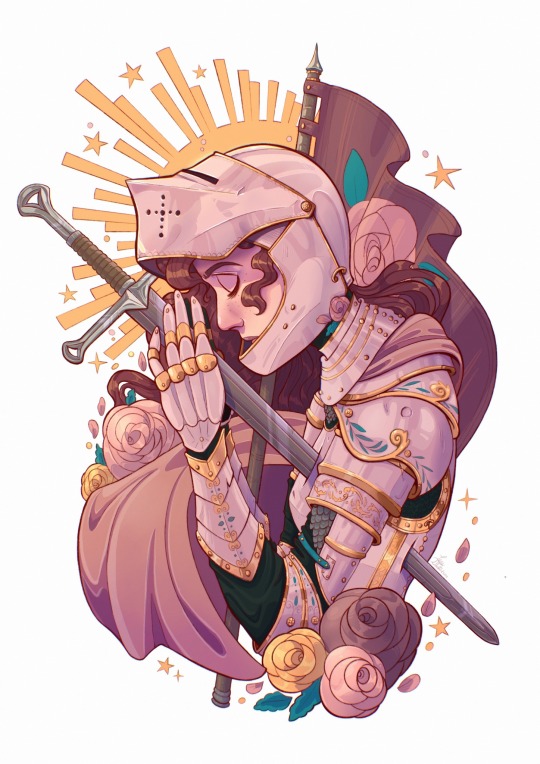
🌹Knight of Roses🌹
“The course of true love never did run smooth”
#digital illustration#original art#small artist#my artwork#fantasycore#procreate#character art#ipad art#book blog#shakespeare quotes#knight in shining armor#roses#medieval aesthetic
98 notes
·
View notes
Text
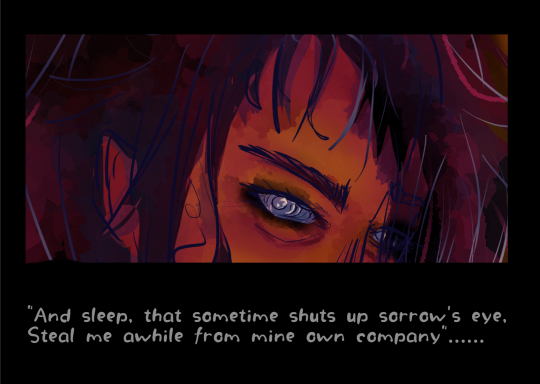
#madara uchiha#madara#Naruto#shakespeare#shakespeare quotes#Madara want to have wet dreams fr#Also poor izuna
52 notes
·
View notes
Text
“If I were to kiss you then go to hell, I would. So then I can brag with the devils I saw heaven without ever entering it.”
William Shakespeare
#book quotes#books#books and literature#books & libraries#bookstagram#poetry#poets on tumblr#mahmoud darwish#poetsandwriters#love quotes#Shakespeare#shakespeare quotes
191 notes
·
View notes
Text
"Oh, he is tedious as a tired horse, a railing wife, worse than a smoky house. I had rather live with cheese and garlic in a windmill, far, than feed on cates and have him talk to me in any summerhouse in Christendom."
Henry IV, Shakespeare or Dazai about Chuuya after starting to read Shakespeare
#bungou stray dogs#bsd#dazai osamu#nakahara chuuya#bsd dazai#bsd chuuya#bungou stray dogs chuuya#bungou stray dogs dazai#incorrect bsd quotes#shakespeare quotes
29 notes
·
View notes
Text

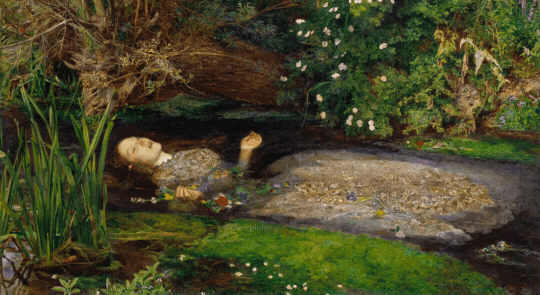

[Shakespeare’s Hamlet / Ophelia by John Everett Millais]
original gif by me
#Shakespeare#Hamlet#Shakespeare quotes#Ophelia#books and literature#classic academia#classic academia aesthetic#John Everett Millais#classic literature#dark academia#dark academia aesthetic#dark academia quotes#english literature#light academia quotes#literary quotes#literature#literature aesthetics#literature quotes#book quotes#web weaving#chloepiphany
125 notes
·
View notes
Text

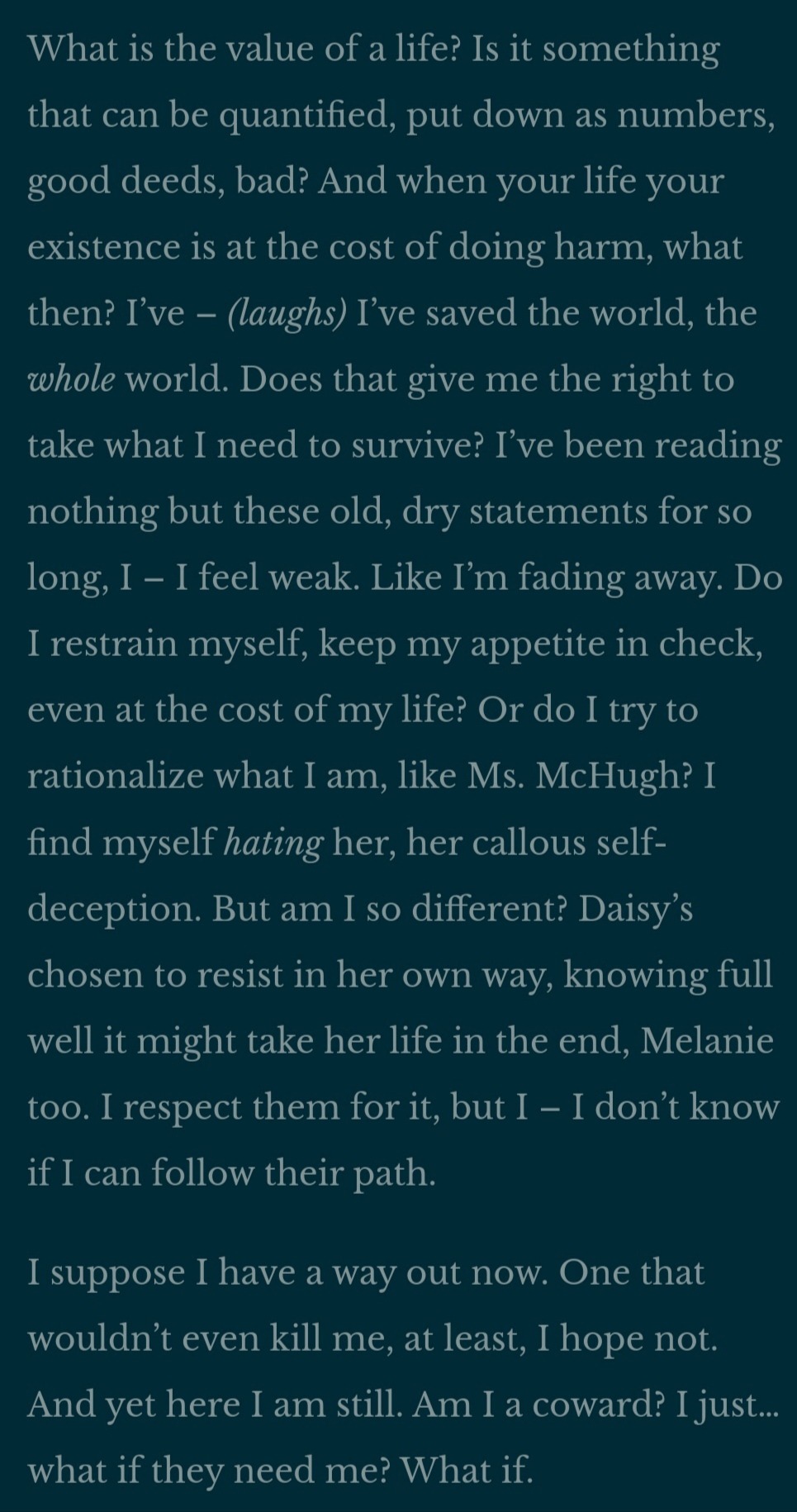
Am I a coward?
//The Magnus Archives,ep. 155 - Cost of Living / Hamlet, Act 2. Scene 2 - William Shakespeare //
#the magnus archives#mag 155#cost of living#tma#hamlet#am i a coward?#hamlet monologue#act 2 scene 2#tma quotes#shakespeare#william shakespeare#bill shakespeare#shakespeare plays#shakespeare quotes#tma season 4#tma s4#jonathan sims#the archivist#the ceaseless watcher#the eye#belphegor luna
41 notes
·
View notes
Text

oh to have someone saying these words to me
#a midsummer night's dream#shakespeare#shakespeare quotes#shakespeare plays#shakespeare poetry#literature#poetry#poetry quotes#classical literature#coquette#light academia#aesthetic#divine feminine#a midsummer night's dream quote
242 notes
·
View notes
Text
This video is literally every friend group ever:
youtube
And it is also the epitome of British popular culture.
#william shakespeare#shakespeare#shakespeare quotes#shakespeare memes#friendship#friendship memes#english literature#hamlet#royal shakespeare company#shakespeare live!#to be or not to be#that is the question#benedict cumberbatch#david tennant#prince charles#king charles iii#judi dench#dame judi dench#tim minchin#paapa essiedu#ian mckellen#sir ian mckellen#harriet walter#british actors#dame harriet walter#british actresses#famous actor shenanigans#this is as british as it gets. folks#Youtube
19 notes
·
View notes
Text
The Macbeths' Missing Child:
So, this isn't really anything groundbreaking, but I've been studying Macbeth recently even though it's not really my favorite tragedy (I'm kind of a Macbeth hater... sorry) but I like it better when I think about in terms of parenthood. Dr. Gemma Miller at The Globe called Macbeth “Shakespeare’s most child-obsessed play” and it’s interesting to think of it this way! (Though Titus Andronicus might give it a run for it’s money…)
(Obligatory disclaimer that this is just an interpretation, and there is no "right" answer to any of this. Please don't comment and tell me I'm "wrong" unless I have my facts wrong - this is just theory, none of us can know what Shakespeare meant for sure).
Anyway, I read a post recently that said something like "some scholars tend to get obsessed with paternal themes in Shakespeare!" and like... yeah... that's where I am. But we can talk about maternal themes too...
So, the backbone of this entire theory is found in act one, scene seven:
Lady Macbeth:
"Does unmake you. I have given suck, and know
How tender ’tis to love the babe that milks me.
I would, while it was smiling in my face,
Have plucked my nipple from his boneless gums
And dashed the brains out, had I so sworn as you
Have done to this."
I.vii.62-67
This is obviously a jarringly violent line, ESPECIALLY coming from a woman. There are a lot of moments like this in Macbeth; just gratuitously upsetting descriptions of death or violence, especially against innocents. This line draws attention and is often quoted to show what a monster Lady M is (more on this later). But what this line tells us is that Lady Macbeth had, at one point, a baby who she loved. It's possible that she had a child in a past marriage, but we know that her and Macbeth don't have any living children together - Macduff tells us that unequivocally in Act 4, Scene 3, specifically stating that Macbeth has "No children." So it isn't that their children are off stage, or that they've grown up and moved out. Either, they've never had a child together, or any children they did have together didn't survive.
(Additionally, this is minutia, but her use of that single male pronoun for the baby could potentially be notable because it's very specific - usually children weren't really gendered during this time period, you can read more about that in Dr. Miller's article, which I'll cite below. If Lady M wasn't referring to an actual son, she likely would've used 'it' twice instead of 'he' once. Take that with a grain of salt, but if we're really reaching, I think we can draw the conclusion that their lost child is a son). Anyway.
Scholars and directors deal with this in different ways. Perhaps most notably, Michael Fassbender's 2015 version opened with a silent funeral for the Macbeth's child, which is often talked about. I'm not sure if that version was the first to include the silent opening scene (probably not) but it's the most famous one, so I'm just using it as an example. It really changes the play if you have that opening scene for a number of different reasons, so if we operate on the assumption that yes, Macbeth and Lady Macbeth had a son who died young, here are some notable interpretations, as well as pieces of evidence that would support the conclusion:
Motherhood & Lady M:
First of all, mothers in Shakespeare are incredibly rare. It just didn't make sense for Shakespeare to write them in extraneously because he didn't have female actors, and women wouldn't have had as much agency in the story. So whenever a woman/mother is included in Shakespeare, she's there for a reason, serving a purpose that a single father couldn't. (There's so much to say about Shakespeare's motherless daughters, but that's a different essay). Obviously, Lady Macbeth serves a major purpose in this text. People, especially non-scholars, often have this misconception of Lady M as a bloodthirsty psycho who drives the very normal and well adjusted Macbeth to commit atrocities. In reality, that is not really what I think the text tells us. Also, it would be uncharacteristically lazy writing for Shakespeare to create such a one-dimensional deuteragonist. No, Lady M has just as many feelings as Macbeth does, and she expresses remorse and worry throughout the narrative, ESPECIALLY when it comes to Lady MacDuff, a mother. So what leads her to participate in these crimes?
Well, Lady Macbeth's violence is very closely tied to motherhood. In her first scene on stage, she says, "Come to my woman’s breasts/And take my milk for gall, you murd’ring ministers," I.vi.54-55. We can potentially say that maybe Shakespeare didn't know how lactation works, but women only produce breastmilk after having a child. So, this line, along with the one about nursing a baby quoted above, really makes it seem like Lady Macbeth had a baby, at least somewhat recently. And if we get into interpretive territory, we can certainly take this line to mean that Lady Macbeth's anger and violence comes directly out of her grief for losing a child. Perhaps "murd'ring ministers" refers both to the spirits who are currently driving her to murder, AND/OR the spirits who already "murdered" or took her child from her. This line can be interpreted as her saying, if I've already lost my child, take away the womanly attributes that allowed me to create it, and let me become just as cruel and murderous as the world that took it from me.
However, when Lady Macbeth snaps, it's because of the murder of Macduff's family (more on that later). In act five, she famously says, "The Thane of Fife had a wife. Where is / she now? What, will these hands ne’er be clean? No / more o’ that, my lord, no more o’ that. You mar all /
with this starting." V.i.44-47. It seems like Lady Macbeth can excuse murder, but she draws the line at hurting another mother and child. This is what drives her to madness.
There's also an element of patriarchal expectation at play. Why is Lady Macbeth so power hungry? Well, usually that's attributed to just regular ambition (a fatal flaw, see all of Julius Caesar for elaboration), but maybe there's more to it. It's certainly possible that Lady Macbeth felt an immense sense of failure for not giving Macbeth a son. As I'll write more about in the next section, Macbeth mourns his childlessness, he wishes he could continue his family line. So, maybe Lady Macbeth is so desperate to grasp power for her husband because it's something she can do. She failed to fulfill her "duty" of providing an heir, but what she can do is get her hands dirty and try to fill that gap between them where a child should be with a crown.
Brief side bar: The love between the Macbeths, in my opinion, is an absolutely essential element of the play. Without it, the story crumbles. Macbeth loves and respects his wife; he calls her "my dearest partner of greatness" and tells her everything. If you've never read Denzel Washington's quote about how he thinks Macbeth and Lady Macbeth fell in love, I would highly recommend looking it up because it's beautiful. But their love and their trust in each other just cannot be discounted. I believe that Lady Macbeth wanted her husband to be happy - she knew he wanted more political power, and she desperately tried to get it for him.
Additionally, when Lady Macbeth dies, Macbeth just shatters. His life becomes meaningless! How painful it is to imagine that Macbeth lost his child, but by some miracle, kept his wife, not losing her in the very dangerous ordeal of childhood, and THEN, through their love for each other, eventually lost her anyway. Macbeth really doesn't seem to see a point to ruling without his wife by his side, or even to live without her. If this is a play about loss, the division of this couple is incredibly emotionally impactful.
Fatherhood, Shakespeare, and Dead Sons:
Something else notable is that Macbeth was probably written about ten years after the death of Shakespeare’s only son, Hamnet. I have a lot of feelings about this. But in terms of Macbeth, it’s not an easily overlooked fact because if Hamlet is Shakespeare grieving, it kind of seems like Macbeth is Shakespeare raging at the world over the loss of his son. It’s such a bloody play, and it really sheds light on Shakespeare’s belief that the loss of a child is one of the worst things to inflict on a character.
In the source material that Shakespeare consulted - Holinshed’s historical chronicles - Macbeth does not intentionally have MacDuff’s children murdered. He really doesn’t seem to want them dead. We see this in Richard III as well in a very similar way - Shakespeare has Richard Plantagenet malevolently send an assassin to kill his nephews when it’s unlikely that that’s what actually happened, (young boys locked in an unheated tower… English winter… shit happens). So, Shakespeare has this kind of fascination with the murder of innocents, especially young boys, and it comes out in many, many plays (I mentioned Titus before but that’s a big one). This is another point that I could elaborate on, maybe that would be a cool essay. But I digress.
So, IV.ii is a really brutal on-stage murder scene which I would say is somewhat uncharacteristic for Shakespeare, and for the Elizabethan stage. This scene was actually censored for years because it was so graphic, and it's still very jarring, especially because Shakespeare takes the time to humanize Lady MacDuff and her son before this murder - it almost feels like someone is going to swoop in and heroically save them, but of course, no one does.
Conversely, we have Banquo's son, Fleance, who escapes Macbeth's assassins, and whose father begs to revenge him. This is a clear parallel to Hamlet, but also, in the context of Macbeth, is a rare moment of mercy within the play. The child is emphasized, again, as in act one, scene three when after hearing the prophecy, Macbeth remarks, "Your children shall be kings."
There's room to interpret a wistfulness in that I.iii remark ^ if we consider that Macbeth has lost his own children. Macbeth's childlessness bothers him throughout the play. In III.i.65-69, he revisits Banquo's prophecy, and says: "They hailed him father to a line of kings.
Upon my head they placed a fruitless crown
And put a barren scepter in my grip,
Thence to be wrenched with an unlineal hand,
No son of mine succeeding."
It's almost as if Macbeth is jealous of Banquo's prophecy, he wishes for a son, and is regretful that he won't have one. Macbeth knows he won't have (any more) children, and is sorrowful. This connects to the above paragraph about Lady Macbeth's attempts to fill that void. Their lost child hangs between them and colors their entire relationship.
Finally, it's interesting, especially in this context, that Macduff is so specifically "not of woman born." Two things, first of all, it's just notable on the whole that in a play so concerned with children, the survivor and killer of Macbeth is distinct from this recurring theme. On a more specific level in relation to this interpretation, it's probably very painful for Macbeth to hear that Macduff somehow cheated his way through childbirth and childhood if Lady Macbeth had complications during her pregnancy and birth. If the Macbeths did all of this because they were grieving the loss of their child, it's sort of heartbreaking that in his final moments, Macbeth may have imagined a way in which his child could've lived; he may have seen a man that his child could have become.
WORK CITED / the basis of this entire post:
#shakespeare#william shakespeare#dark academia#macbeth#lady macbeth#hamlet#shakespeare plays#shakespeare quotes#academia#studying
116 notes
·
View notes
Text
Sit by my side, and let the world slip: we shall ne'er be younger.
William Shakespeare, The Taming of the Shrew
#shakespeare#william shakespeare#dark academia#romantic academia#bookish#booklover#classic academia#books & libraries#book quotes#shakespeare quotes#classic literature#classic lit quotes#literature quotes#literature academia#the taming of the shrew
61 notes
·
View notes
Text
Just watched the play episode of Rise of the Pink Ladies and I am feeling so so normal about the pilgrim's hands scene again. So so normal.
#you don't understand i love Cynthia so much guys#a Shakespeare queer awakening is something that can actually be so personal#rise of the pink ladies#grease rise of the pink ladies#cynthia znudowski#cynthia x lydia#shakesqueer#shakespeare quotes#merely players#that song has my HEART
60 notes
·
View notes